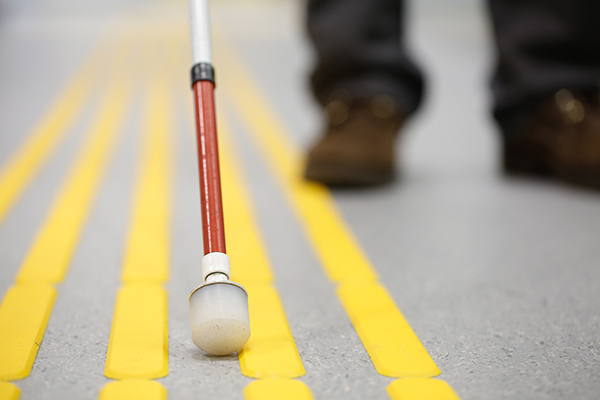Latest News Archive
Please select Category, Year, and then Month to display items
05 April 2021
|
Story Dr Nitha Ramnath
|
Photo Supplied
 Jamba Isaac Ulengo.
Jamba Isaac Ulengo.
François van Schalkwyk and Keenan Carelse, UFS alumni leading the university’s United Kingdom Alumni Chapter, have put their voices together to produce and direct the podcast series. Intended to reconnect alumni with the university
and their university experience, the podcasts will be featured on the first Monday of every month, ending in November 2021. Our featured alumni share and reflect on their experiences at the UFS, how it has shaped their lives, and relate
why their ongoing association with the UFS is still relevant and important. The podcasts are authentic conversations – they provide an opportunity for the university to understand and learn about the experiences of its alumni and to celebrate
the diversity and touchpoints that unite them.
Our podcast guest
Born in the North West town of Vryburg, Ulengo first played provincial rugby at the U16 Grant Khomo Week in 2005. While attending Jim Fouché High School in Bloemfontein, Ulengo was chosen to represent the Free State at various youth levels. As
an up-and-coming player, Ulengo made his break via the FNB Varsity Cup Competition where he starred for the Shimlas, scoring 11 tries in 18 appearances over the three seasons between 2010 and 2012. A short stint with the Free State Vodacom Cup side
saw him make his debut for the Blitzboks (Glasgow 2012), followed by a tournament at the London Sevens in 2014. Ulengo has been a prominent member of the South African Sevens since making his debut for the team in the Scotland leg of the 2011-2012
IRB Sevens World Series. He played in the two final tournaments of that season and then signed a two-year contract with the South African Rugby Union to represent the team in the 2012-2013 and 2013-2014 series. While he only competed at four events
in his first full season, he was involved in seven of the tournaments in his second season.
Ulengo made his return to the sport by signing a contract to play Currie Cup rugby for the Pretoria-based Blue Bulls in 2014 and for their Super Rugby franchise, the Bulls, from the 2015 Super Rugby season.
Tactile paving assists visually impaired
2017-10-28

Tactile paving is being installed at pedestrian crossings to assist
visually-impaired persons at the UFS.
Photo: Supplied
Crossing roads and accessing buildings has always been a challenge for people with visual impairments. They had to rely on peripheral sounds, such as car brakes and cues. However, after the installation of tactile paving – paving with special textures assisting the visually impaired to feel the difference between walking around on campus and crossing the road, this will no longer be a problem at the University of the Free State (UFS).
This is one of several developments that University Estates’ Department of Facilities Planning has in the pipeline for 2017 in order to ensure that the university attains its key component in providing a high-quality student experience.
Maureen Khati, Assistant Director of Project Management: Facilities Planning, says, “We saw the need to install these paving blocks in strategic spaces, as identified by the Center for Universal Access and Disability Support (CUADS).” She says these blocks will make it easier for people with visual impairments.
Special features designed to aid visually-impaired persons
These installations have special features that will assist those students and employees with limited vision or blindness to navigate through pedestrian crossings and the different campus buildings. The university chose a unique design of tactile paving that focuses on warning and directing those with visual impairments.
UFS eager to improve accessibility and mobility
The university, and all the stakeholders involved in this initiative, are delighted to be embarking on this project and are looking forward to its successful execution. To improve accessibility and mobility, more accessible entrances and exits will be built, effective signage will be installed inside and outside buildings, but the most important aspect is that dedicated seating space will be made available in lecture rooms for special-needs students.
Khati says, “More focus has been put on installing ramps in all buildings to make them more accessible for people with disabilities, as well as other needs required to enhance accessibility at the UFS.”
For the UFS, this initiative is one of many to come, as extensive research is being done and priorities are implemented accordingly.